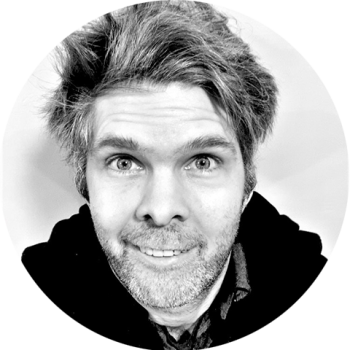
About Derek Murphy:
Derek Murphy lives in castles and writes YA dark fantasy and science fiction. He wrote his MA Thesis on Harry Potter and his PhD dissertation on Paradise Lost, and believes that words are magic. When not dreaming up epic tales with dragons, aliens, vampires, mermaids and fallen angels – either hunting or falling in love with each other – he prefers to gargle espresso, half buried in a pile of books.
What inspires you to write?
Tragedy mostly. I love ancient myth and cultural folklore, and of course anything related to magic, mayhem or monsters. I write urban fantasy usually in realistic modern settings, though I also adore creative dystopian stuff – I like my characters to suffer and for my stories to be deep and resonant.
What authors do you read when you aren’t writing?
I enjoy some big name trad published authors on occasion, and try to stay up to date on new releases, but I also love discovering new indie authors with great stories and voices. Tahereh Mafi, Suzanne Collins, Beverly Cleary, and R. L. Stine are a few.
Tell us about your writing process.
Tortured and painful. 3 months of avoidance and a few weeks of all nighters. But sometimes I get in the flow and the story unfolds. I'm definitely a plotter and even made a 24 chapter novel outline cheatsheet that's gotten thousands of downloads – it helps me keep on track even if the outline will evolve. Then after the very painful first draft, I spend about twice as long editing and revising things, often the very best writing only comes out in a late final pass once the story is there. I use MS word and IAwriter (app), sometimes Vellum to format, design my own covers.
For Fiction Writers: Do you listen (or talk to) to your characters?
I don't think they talk to me, but I don't exactly tell them what to do or say either. Hopefully I put them in the right places and then their situation or personality dictates their chatter or actions.
What advice would you give other writers?
Two things: first, plotting helps even if you don't think you need it, or even if you only use it after you get stuck. Also there are clear rules to learn to tell good stories and while it may not be as fun as discovery writing, you also don't want to spend a decade discovering how to write without learning how to write better. But also, editing is different from drafting. There's a time to be creative and get crazy and let things happen; and a time to be critical and focus on improvement. Don't obsess about the wrong thing at the wrong time. These are different things, you can't do them both in the same mindset.
How did you decide how to publish your books?
I'm pretty familiar with self-publishing, as an editor and book cover designer, so I had the right skills to put the book out there – although I've redone my covers probably a dozen times and am constantly improving my platform.
What do you think about the future of book publishing?
Things are scary and will change in a big way this year. Publishing has long been a gambit but AI tools will make it both easier to write and publish on a budget, but also make it easier for everyone else to do the same regardless of skill level. For my part I'm trying to get ahead of the curve before it's too late – that said, of course, there will always be space for fresh talent and new ideas.
What genres do you write?: YA fantasy & dystopian
What formats are your books in?: eBook, Print, Both eBook and Print, Audiobook
Website(s)
Derek Murphy Home Page Link
Link To Derek Murphy Page On Amazon
Your Social Media Links
Goodreads
Twitter
YouTube
All information in this post is presented “as is” supplied by the author. We don’t edit to allow you the reader to hear the author in their own voice.
